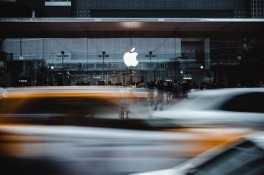
Aware, a software startup, uses AI to scan employee messages on platforms such as Slack, Microsoft Teams, and Workplace by Meta to monitor employee behavior and assess potential risks.
Major American companies like Starbucks, Chevron, T-Mobile, Walmart, and Delta use Aware to analyze around 20 billion messages from over three million employees, as reported by CNBC.
While workplace surveillance isn't new, experts worry that relying on emerging AI for employee monitoring could result in decision-making errors and privacy issues.
Aware, Starbucks, Chevron, T-Mobile, and Walmart didn't respond to Business Insider's request for comment before publication. Delta informed BI that it uses Aware on its internal social media platform for regular trend and sentiment monitoring and legal records management.
Aware's AI Tool in the Workplace
Employers utilize Aware's AI tool to assess how their employees react to company policy changes or marketing initiatives, explained Jeff Schumann, co-founder and CEO of Aware, to CNBC. This allows employers to observe variations in employee attitudes based on factors such as age and location.
AI Aware is also employed to detect potential risks in the workplace. Equipped with large language models, the startup's software can analyze text and images in conversations to flag incidents related to behaviors like bullying, discrimination, harassment, pornography, nudity, and other perceived toxic behaviors. "It's always tracking real-time employee sentiments and real-time toxicity," explained Schumann.
The CEO mentioned that the data Aware collects on workers' sentiments and toxicity doesn't include their names, but confidentiality might be lifted in extreme cases.
How Aware AI Works
Aware's eDiscovery feature lets AI pull an individual's name if it detects specific keywords and statements in a Slack or Teams message as a policy violation. If the AI flags the message as an "extreme risk," the employer can send the name of the suspected perpetrator to human resources, Schumann explained to CNBC.
Some common ones include extreme violence, extreme bullying, and harassment, but it varies by industry, the CEO explained. Incidents like insider trading would also be tracked using this tool.
Privacy Experts' Concerns
While the CEO of Aware told CNBC that companies don't use its AI models to make decisions or as a basis for disciplinary action, some privacy experts disagree.
Amba Kak, executive director of the AI Now Institute at New York University, told CNBC that no company can make sweeping assurances about the privacy and security of LLMs and similar systems.
Jutta Williams, the co-founder of Humane Intelligence, a nonprofit organization, told the outlet that it's challenging to face your accuser when AI's explanations are still immature, referring to how AI findings may not fully represent a workplace incident.
Mandate Informing Employees About Digital Monitoring Practices
While Starbucks, Chevron, T-Mobile, Walmart, and Delta didn't tell BI about their disclosure of surveillance practices to employees, certain state laws, such as New York's Senate Bill S2628, mandate that employers inform their workers about digital monitoring practices.
Using AI to monitor employees is one of big companies' newest methods to keep tabs on their workers, particularly as employers push return-to-office mandates.
Last February, workers at Tesla's autopilot division in New York said the company was monitoring their keystrokes to check if they were working. Some workers told Bloomberg they were refused bathroom breaks because of this system.
Less than a year earlier, a Business Insider investigation found that JPMorgan Chase was using an internal tool to monitor their employees' office attendance, calls, and calendars, where one employee claimed to create a culture of "paranoia, distrust, and disrespect.
In severe instances, employee tracking systems were linked to firings.
RELATED ARTICLE: Micromanagement As Top Indicator of a Toxic Workplace, Causing People to Quit -Survey Finds
© 2017 Jobs & Hire All rights reserved. Do not reproduce without permission.




